A doctor has revealed exactly what happens to your body during ‘high intensity drinking’ which experts have said is even worse than binge drinking.
The festive period is now frighteningly close, which means we can all look forward to knocking back everything from mulled wine at the Christmas markets to doing shots with your co-workers at the office party.
Although it’s perfectly reasonable to want to let your hair down a little after a long year, the winter months should not be used as an excuse to overdo it.
It’s no secret how easy it can be to spiral into binge drinking while out celebrating with friends and family, with health experts keen to warn against a particularly concerning way in which people consume alcohol at big events, known as ‘high intensity drinking’.

The alcohol is often flowing around Christmas time (Getty Stock Images)
What is ‘high intensity drinking’?
According to research published by the US National Library of Medicine, high intensity drinking is typically defined as a person drinking more than double, sometimes even triple, what is considered the binge drinking threshold.
The binge drinking threshold is around five drinks for a man – or four drinks for women – consumed within a space of two hours.
While this study doesn’t take into consideration a person’s BMI, ability to metabolise alcohol or the strength of drink consumed; it does provide a benchmark figure of eight to 10 drinks within a two-hour period, depending on a person’s gender, as an indicator for high intensity drinking.
Why is high intensity drinking particularly dangerous?
Aside from the obvious negative side effects from overdoing it on the booze, high intensity drinking can be especially damaging to the body due to the amount of alcohol in your system.
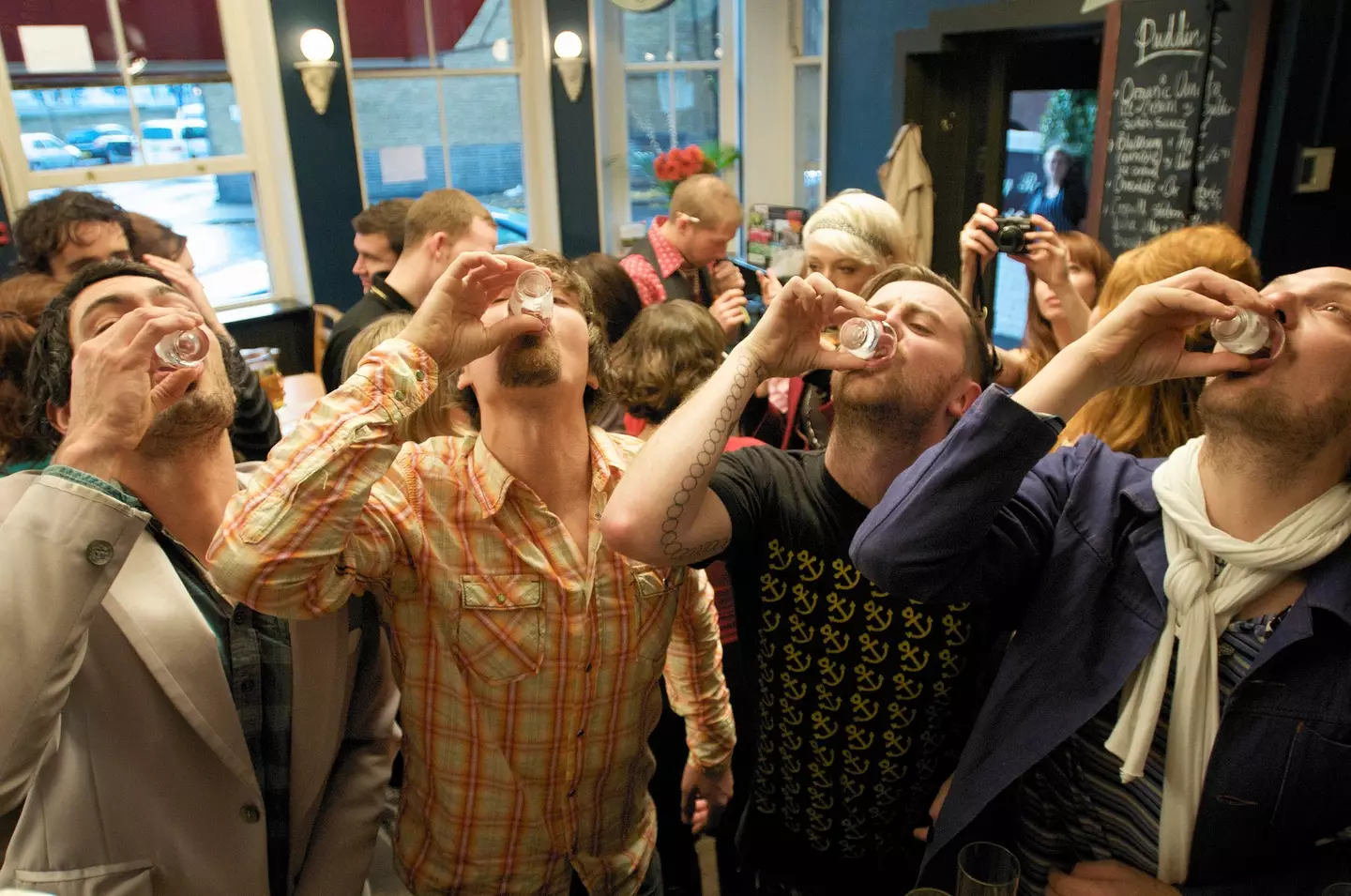
Doctors are warning against overdoing it on the booze (Getty Stock Images)
Having a blood alcohol concentration (BAC) of 0.2 percent or over is considered a common side effect of high intensity drinking, which can lead to dangerous changes in the body.
Explaining why having such a high BAC can be so damaging to the body, Dr Suhail Hussain explained to LADbible that high intensity drinking poses severe risks such as ‘alcohol poisoning, injuries, and death’ which can be particularly prevalent in young people.
“Reaching a BAC of 0.2 percent is a medical emergency, not a casual drinking milestone,” he explained.
“The long-term effects of drinking this heavily can devastate your health, leading to organ damage, brain impairment, and addiction.”

Dr Suhail Hussain has explained why high intensity drinking can be so bad for the body (Getty Stock Images)
What does high intensity drinking do to the body?
According to Dr Hussain, high intensity drinking can lead to:
- Severe impairment, increasing risk of accident
- Diminished pain response
- Increased risk of blackout
- Increased choking risk
- Diminished pain response
Dr Hussain also explained that reaching a BAC of 0.2 percent is close to the threshold for alcohol poisoning which means the central nervous system becomes so depressed that ‘vital functions like breathing and heart rate may slow or stop’.
Consistent high intensity drinking can also cause damage to the health to the brain, liver and heart.
Interview conducted by Joe Harker.
Dr Suhail Hussain is a private, home visiting GP, providing bespoke medical care to discerning clients in Herts and Greater London. Visit his website for more info.
Please drink responsibly. If you want to discuss any issues relating to alcohol in confidence, contact Drinkline on 0300 123 1110, 9am–8pm weekdays and 11am–4pm weekends for advice and support.
Featured Image Credit: Getty Stock Images
Topics: Food And Drink, Alcohol, Health
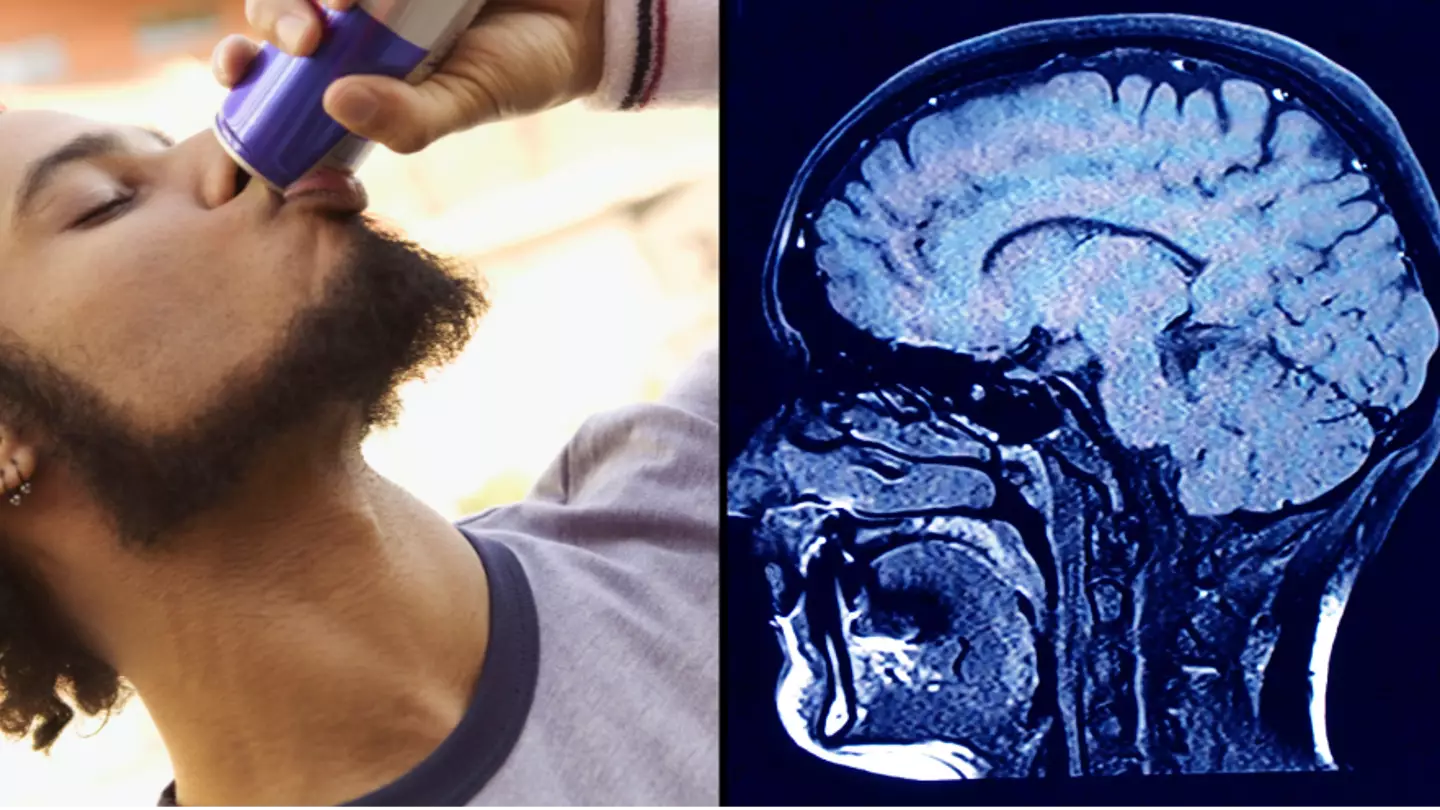
This is what happens to your body in the minutes, hours and even days after you consume a high caffeine energy drink.
Most of us are aware that energy drinks aren’t particularly good for our health, right?
Some of them cram in as much as 160-200mg of caffeine per 500ml – for context, your average cup of coffee has around 80mg and a can of cola contains about 30mg.
And if you’ve wondered what consuming so much caffeine in such a short space of time can do to your body, a handy infographic shared by Cincinnati Children’s Hospital has the run-down.
The first 10 minutes
In the first few minutes after you’ve knocked back an energy drink, the caffeine will be making its way into your bloodstream, which will see an increase in your heart rate and blood pressure.
15 to 45 minutes
It’s fully kicking in now – as this is the time when the caffeine levels will peak in your bloodstream.
You may feel more alert and have increased levels of concentration. This is the ‘best bit’, basically.
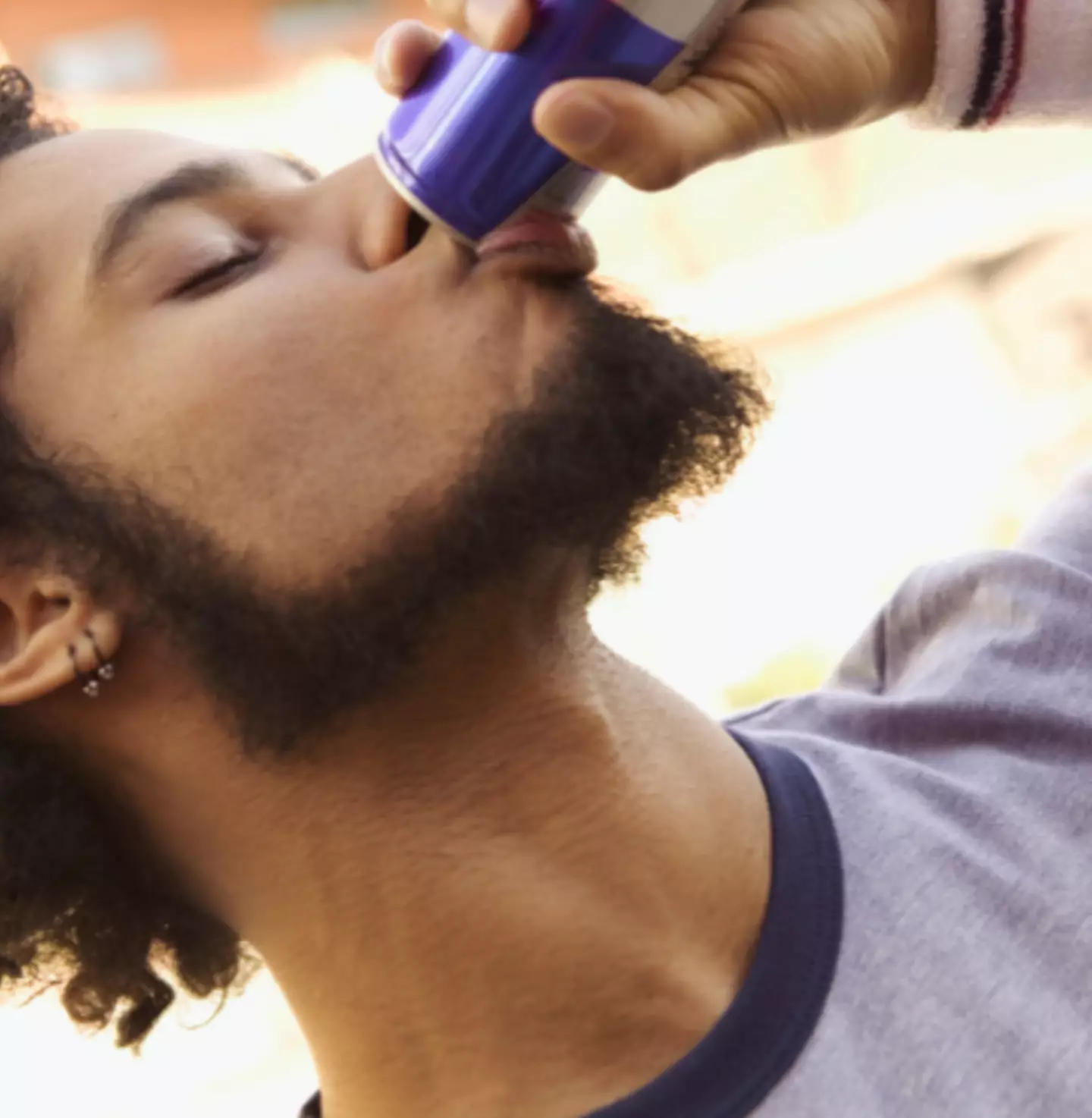
Getty Stock Image
30 to 50 minutes
The caffeine is now fully absorbed, which your liver responds to by absorbing more sugar into your bloodstream.
This can lead to a bit of a sugar high, which might give you a bit of boost alongside the caffeine.
1 hour
But what goes up, must come down and around about the one hour point you may begin to experience a sugar crash alongside the effects of the caffeine wearing off.
During this time, you may start to feel tired and your energy levels will drop.
5 to 6 hours
About five to six hours in, your body will have reduced the content of caffeine in your bloodstream by around half. But this can vary depending on numerous factors including your age.
.jpg)
Getty Stock Image
12 hours
And six hours on from that – 12 hours after you drank the energy drink – your body should have removed all the caffeine from your bloodstream. However, again, this can vary depending on biological factors.
12 to 24 hours
If you regularly drink caffeine, at this point you might start to experience some withdrawal symptoms – these can include headaches, increased irritability and constipation. Lovely.
7 to 12 days
Previous studies have shown that this time frame for your body to become tolerant to your regular caffeine dosage. In other words, the amount of time it takes for you to become used to the amount of caffeine you regularly intake, therefore lowering its impact on you.
Featured Image Credit: Getty Stock Images
Topics: Food And Drink, Health
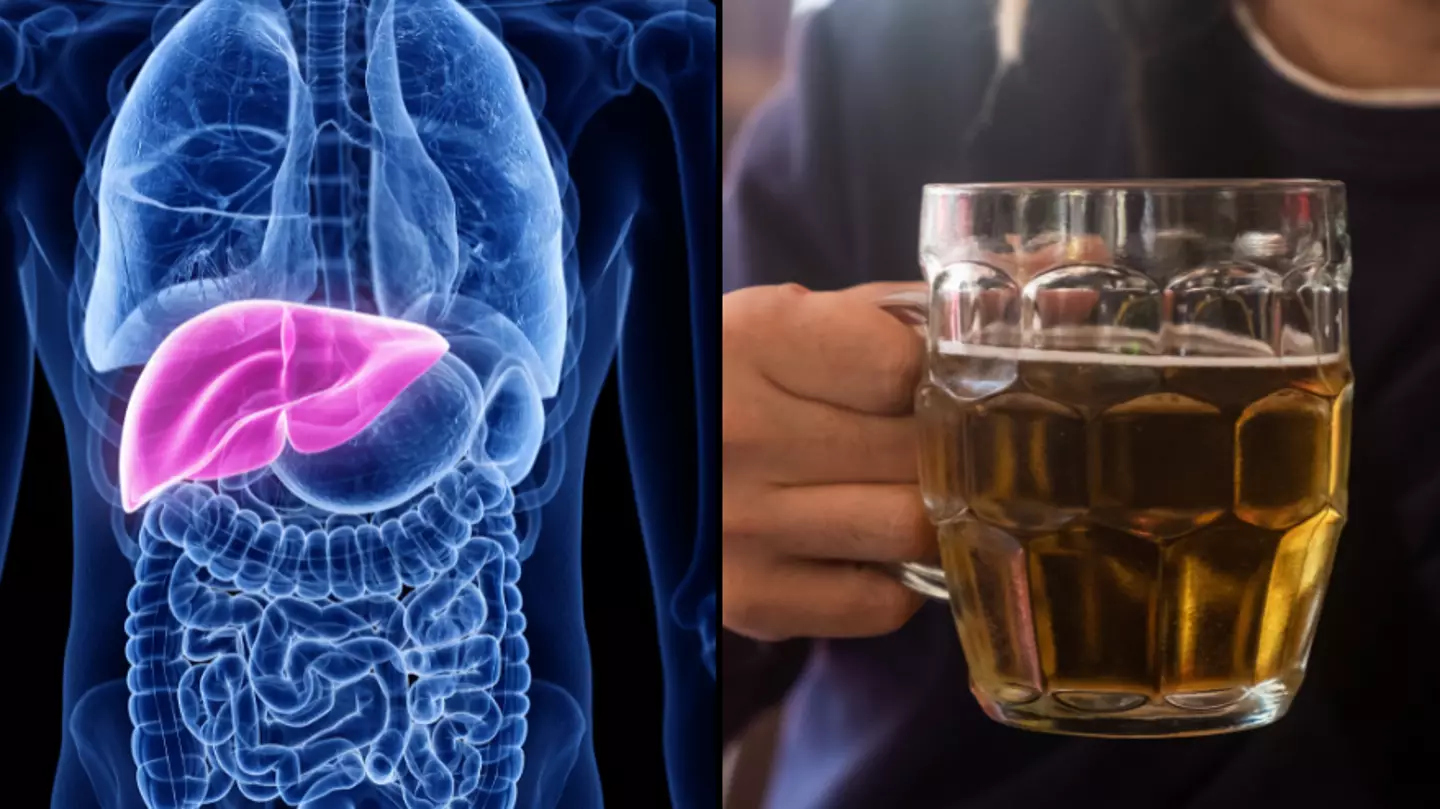
Giving up drinking may be an extremely daunting task for many, given as though so many social events here in the UK seem to revolve around it.
Alcohol has long been known to be detrimental to our health and well-being in the long-term, with it causing more of an effect as we get older.
After a doctor recently revealed the age that you should aim to give up drink for good, it’s also worth noting how long your body takes to recover from alcohol after quitting.
Health issues caused by alcohol consumption
Excessive consumption of the substance is known to bring on a number of health issues that could eventually lead to death.
The Alzheimer’s Society previously stated that research reveals that excessive alcohol consumption can increase the chances of dementia, as drinking reduces the volume of your brain’s white matter, which can stop it from functioning properly.
The author of How to Prevent Dementia: An Expert’s Guide to Long-Term Brain Health, Dr. Richard Restak, said that it is a ‘direct neurotoxin’ and that it can damage or destroy the function of the nervous system.
So, at what age should you go teetotal?
Dr. Restak revealed that there is an age that you should aim to cut it out completely.
“Ask yourself, ‘why do I drink?’ If the answer is ‘because alcohol helps me to elevate my mood and lower my anxiety,’ you may be at some peril, and it’s probably best to stop altogether,” the doctor wrote.
“I strongly suggest that if you are 65-years-old or older, that you completely and permanently eliminate alcohol from your diet.”
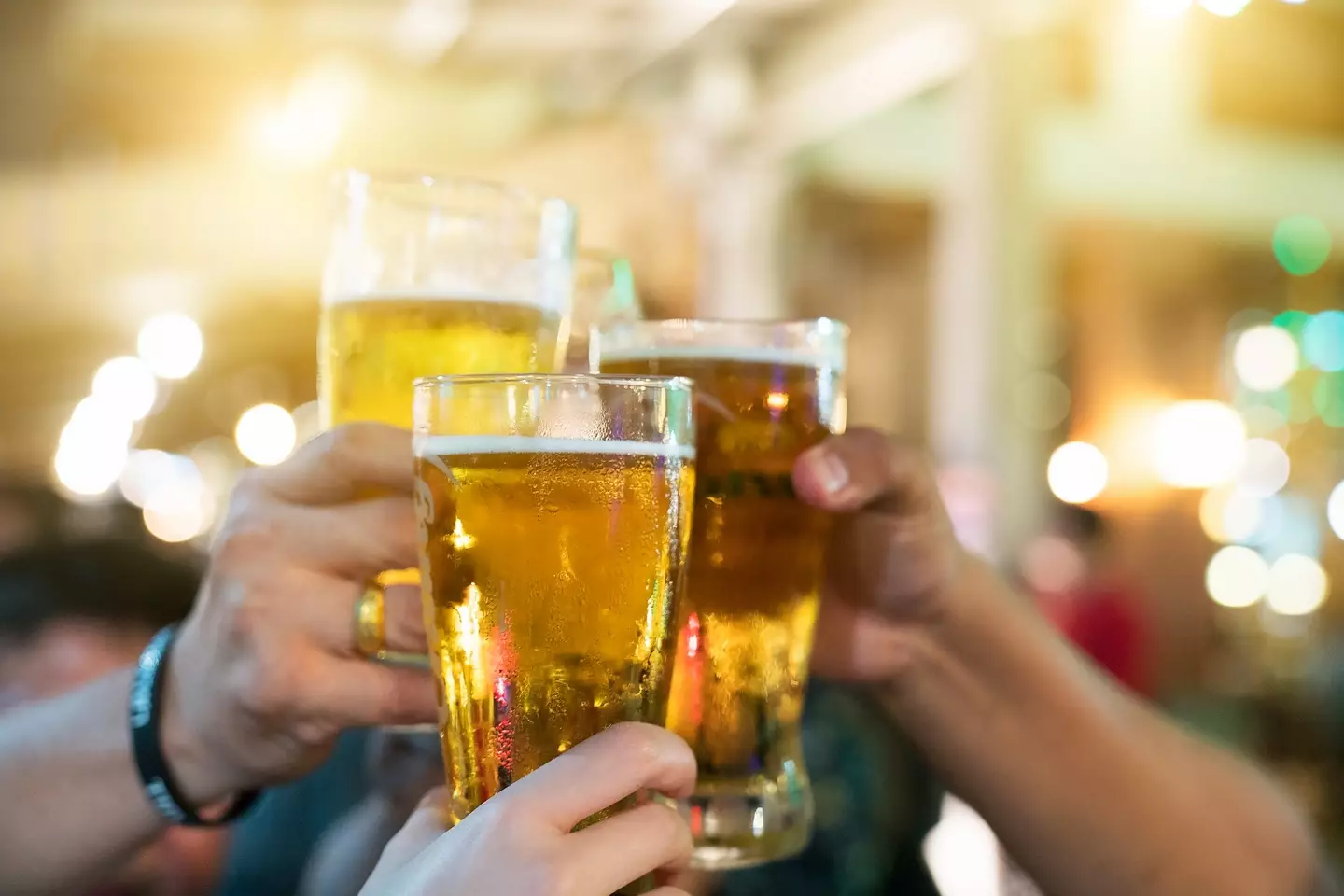
Aiming to quit drinking at 65 will benefit your health immensely. (Getty Stock Photo)
You may even choose to quit earlier to avoid all the health problems that comes with excessive drinking in your younger years.
But what exactly happens after you quit?
There are a number of withdrawal symptoms that your body will go through after taking that last sip that begin in the hours following, the Priory Group explains.
Early symptoms are mild, with the regular hangover occurrences of headaches, hand tremors being coupled with alcohol cravings and feelings of depression.
In severe situations, some may experience delirium tremens (DTs), which is the most severe form of withdrawal as it can lead to cardiovascular collapse after an altered mental status and sympathetic overdrive, after 12 to 24 hours.
Within 48 hours, symptoms will begin to die down as your body adjusts to being without alcohol , but the process isn’t done there.
Depending on the person, and their alcohol intake/misuse/addiction, the entire withdrawal process usually takes anywhere between three to seven days of your final drink, or more depending on severity.
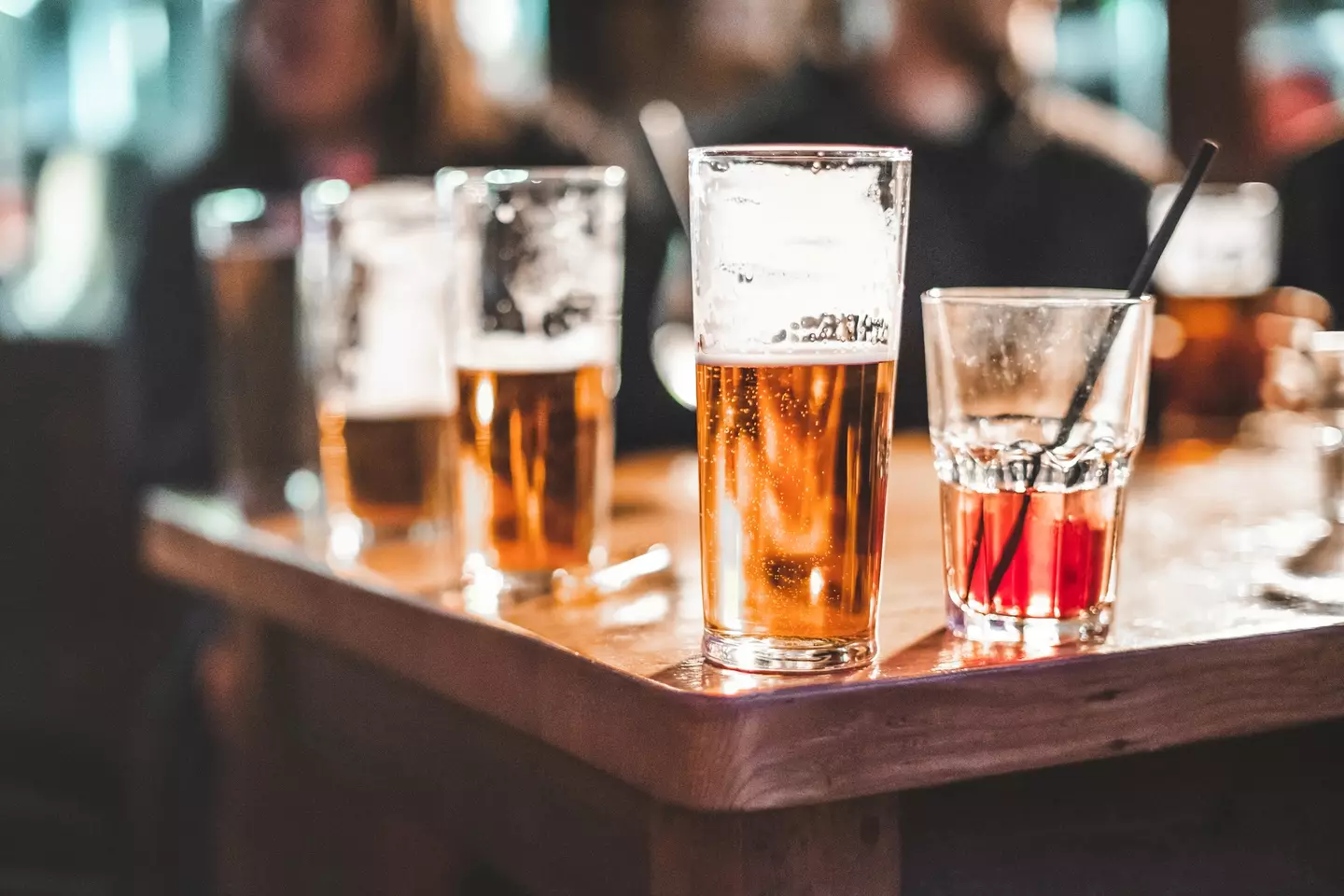
It usually takes a week to overcome all symptoms of quitting alcohol. (Getty Stock Photo)
If you don’t stop though, you increase the chances of developing a certain type of dementia, associated with the excessive use of alcohol.
Dementia UK explains: “Alcohol related brain damage (also known as alcohol related brain impairment) is caused by drinking alcohol excessively over a prolonged period of time.
“It can be caused by a combination of reasons including vitamin B1 deficiency (thiamine), the toxic effects of alcohol on nerve cells, head injury and blood vessel damage.”
It is recommended that you lower your alcohol intake to no more than 14 units a week, over no more than three days – this can prevent alcohol-related brain damage.
Other things that help include eating healthy, avoiding smoking, increasing physical and mental activity, managing stress level and keeping tabs on your blood pressure and cholesterol.
Featured Image Credit: Getty Stock Photos
Topics: Health, Alcohol, Lifestyle, Science, Food And Drink
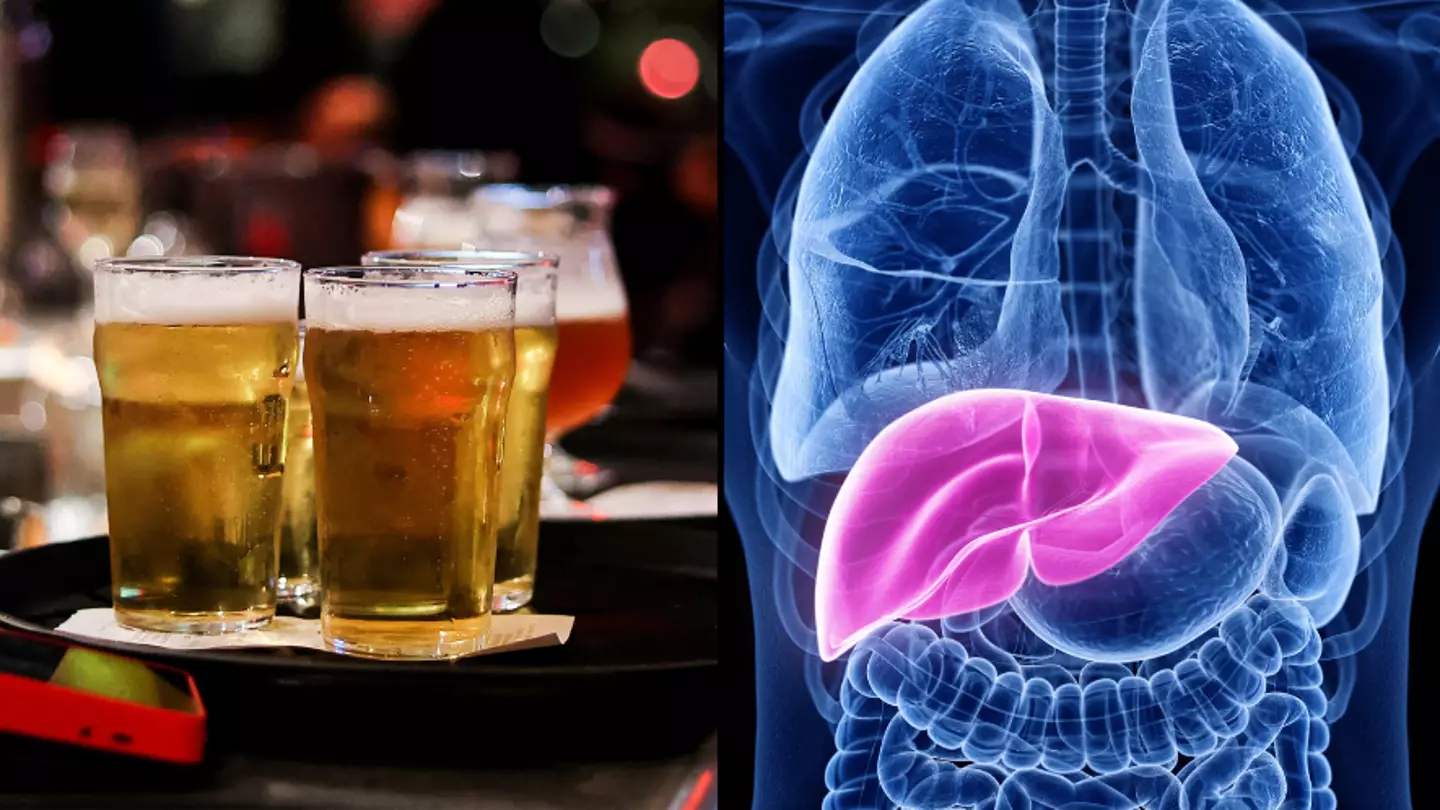
An Australian doctor has revealed the five positive changes you can expect from giving up alcohol for a month – and why everyone should give it a go.
Drinking alcohol is a pretty ingrained part of society, with the average person in the UK knocking back around 18 units a week, according to research from Alcohol Change UK, which is over the guidance of 14 units per week.
A doctor has now urged people to try a month without the booze, revealing that four weeks would be enough for you to start noticing the positive changes to your body.
Below are the five changes Dr. Zac Turner revealed would happen after a month teetotal, during an interview with news.com.au.
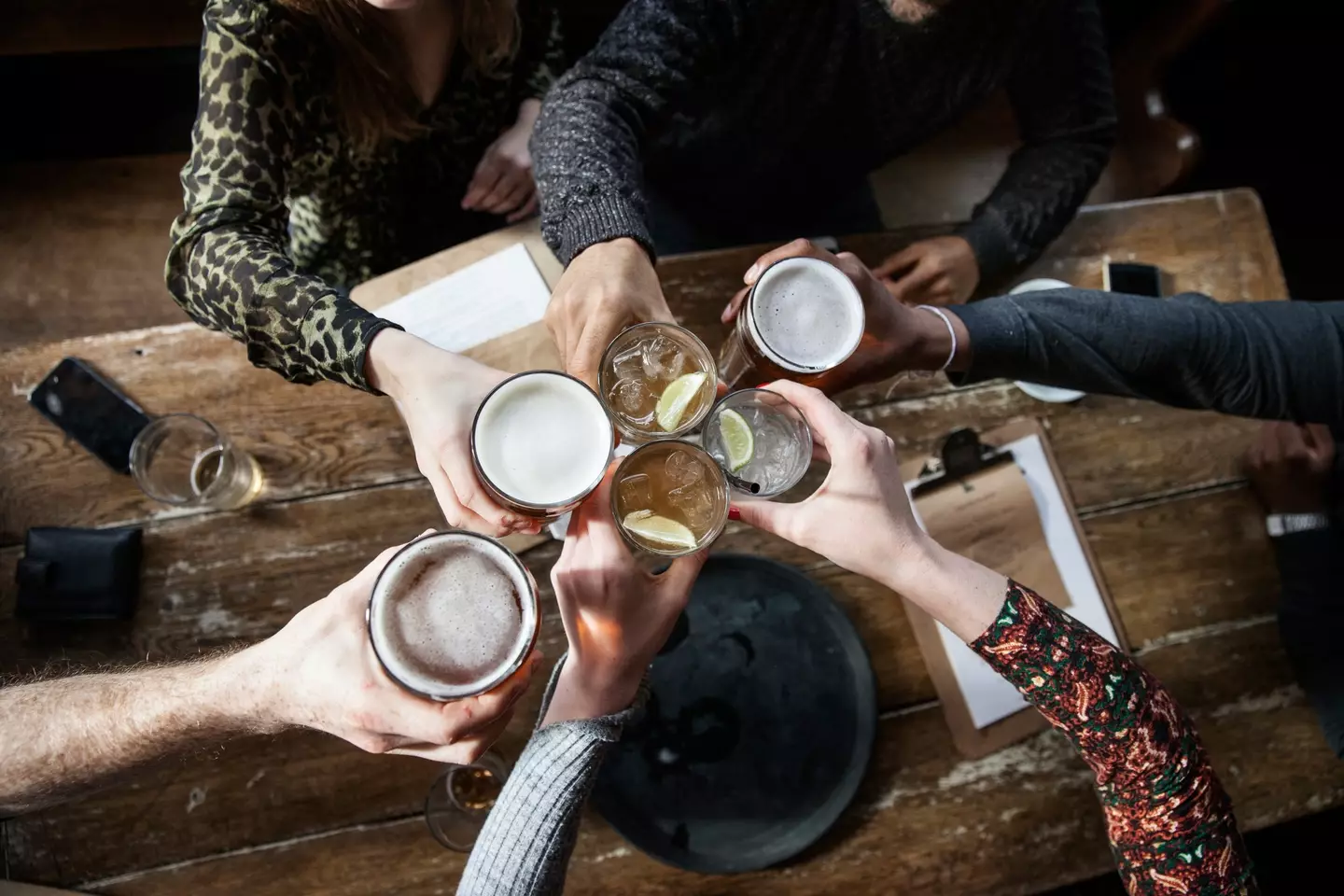
The majority of Brits love relaxing with a drink of the strong stuff. (KENZO TRIBOUILLARD/AFP via Getty Images/Getty Stock Images)
Stable mood
The first change Dr. Turner points out is that less alcohol equals a more stable mental state.
This is because alcohol consumption is linked to chemical changes in your brain
which can cause heightened negative feelings such as anger, depression and anxiety, according to research from the Mental Health Foundation.
Dr. Turner adds that cutting back on the booze will lead to a more stabilised mood, with initial changes being apparent in just a few days.
Potential weight loss
Alcohol can cause weight gain for a number of reasons. According to the Better Health Channel.
Boozy drinks such as beer and wine are high in empty calories – which are calories that don’t carry nutrients for the body – and alcohol is also known to slow down the burning of body fat, as your digestive system will prioritise breaking down the drinks you’ve chugged before anything else.
It can also cause the body to feel more hungry and crave unhealthy foods.
Dr. Turner says a month off the strong stuff will allow you to see positive changes in terms of fat loss and energy improvements.
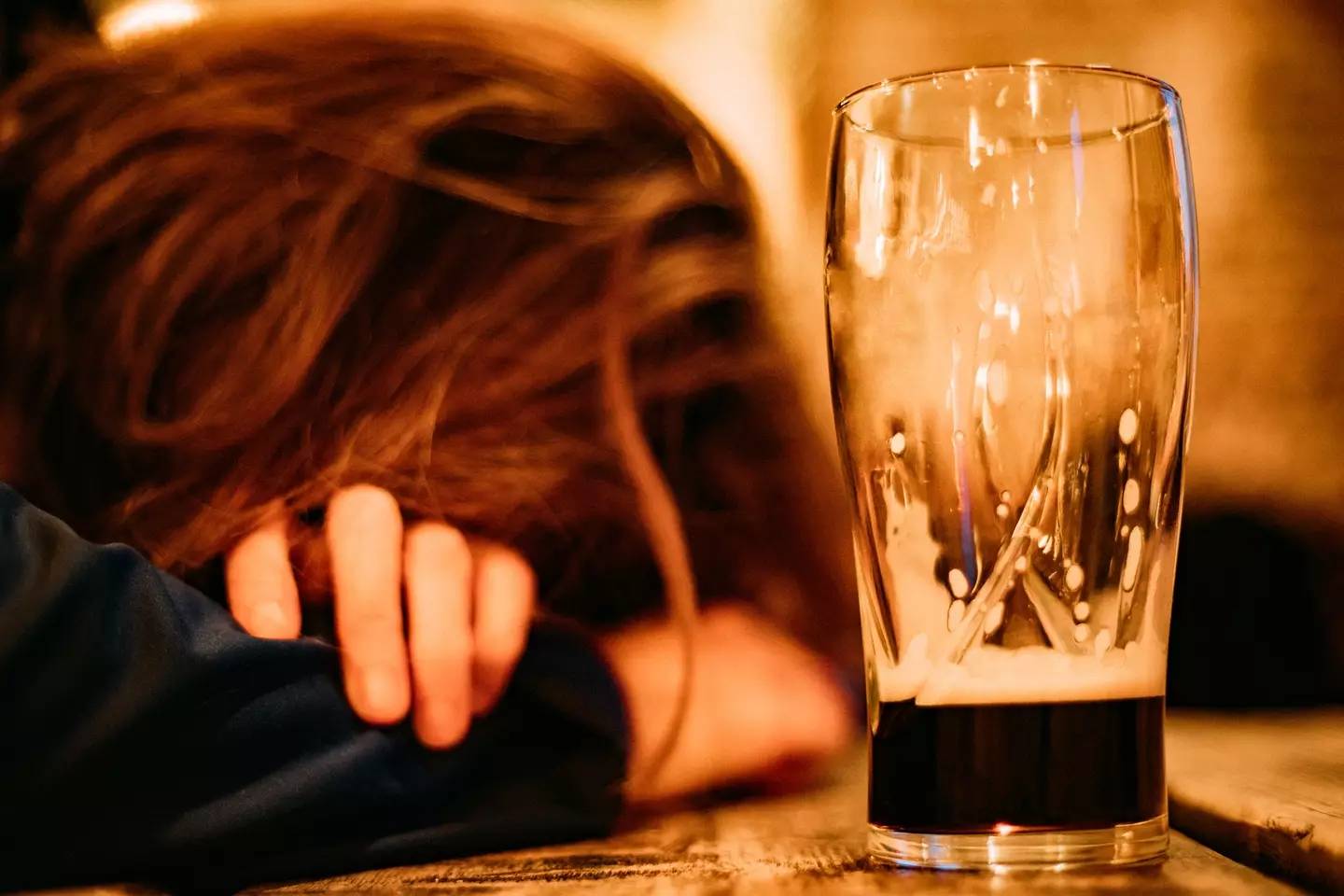
Just a month off the booze can see various improvements to your life. (Getty Stock Images)
Improved mental function
According to Dr. Turner, swapping your gin and tonic for a glass of orange juice could aid your brain function, memory and cognitive abilities.
The National Institute on Alcohol Abuse and Alcoholism adds that this is because booze interferes with the brain’s communication pathways and can lead to a higher risk of injury.
Better quality sleep
Research from Drinkaware states that a lifestyle which involves regular drinking leads to a negative impact on the quality of your sleep, which leaves you feeling tired and sluggish.
This is because alcohol causes the body to spend less time in the Rapid Eye Movement (REM) stage of sleep, which leaves you feeling less refreshed.
Dr. Turner believes that even a few days without alcohol will leave you experiencing a better quality of sleep.

A month off alcohol means no more hangovers. (Getty Stock Images)
Better liver function
The most obvious part of your body which will see improvement after cutting out the drink is the liver.
The liver is responsible for breaking down any alcohol which enters the body, with prolonged excessive drinking leading to various diseases.
Dr. Turner believes that even a few days without booze will allow the organ to reduce liver fat and inflammation.
Featured Image Credit: (KENZO TRIBOUILLARD/AFP via Getty Images/Getty Stock Images)
Topics: Alcohol, Food And Drink, Health
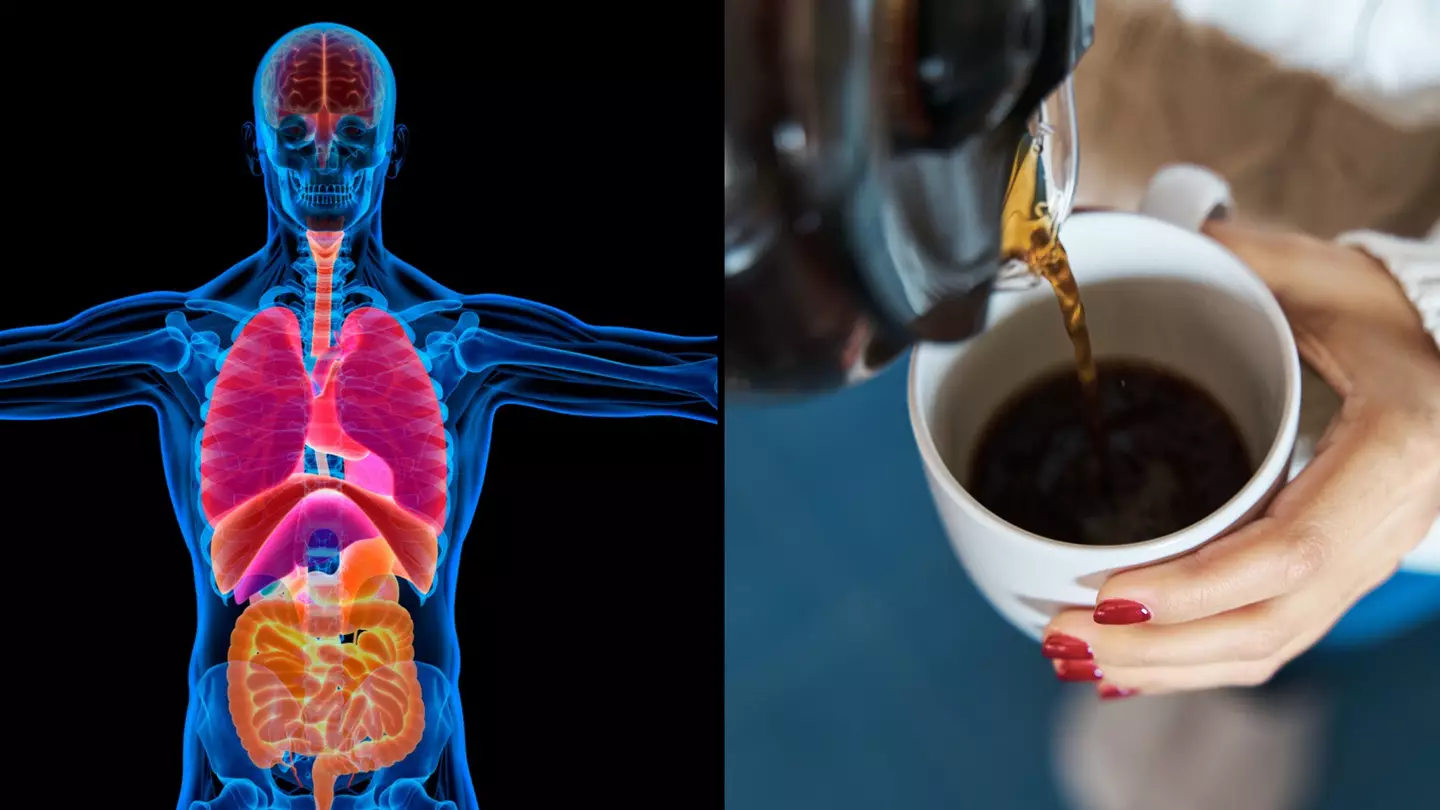
Experts have given an insight into what exactly happens inside your body when you take too much caffeine.
Caffeine is something that most Brits consume every single day religiously.
Whether it’s in the form of a morning coffee, tea, or a can of your favourite fizzy drink, it’s in a lot of our most-loved beverages.
Too much caffeine?
But a brand of lemonade in the US has recently been banned amid accusations that the amount of caffeine in the drink was too high.
This is despite being within the countries recommended daily intake guidelines.
This has raised questions about how much caffeine is too much, and whether guidelines should be changed.

The majority of Brits consume caffeine every single day. (Getty Stock Image)
How does caffeine affect the body?
Some of the most crucial functions at play in our body include heart rate, blood flow, and sleep cycles – which are all affected by a chemical called adenosine.
This occurs naturally in the body, and it’s the job of this chemical to make us tired at the end of the day.
However, when we consume caffeine, it’s absorbed into the bloodstream quickly, where it out-competes adenosine.
It does this by preventing it from connecting to receptors and doing its job – making us feel more awake and alert.
Caffeine can also boost the levels of dopamine and adrenaline, which help make you feel more stimulated.
Effects on the brain
Talking to BBC Future, Damian Bailey, professor of physiology, said: “The brain is like a big muscle. It needs to perform things, and dopamine, adrenaline and caffeine all stimulate it.”

Caffeine stimulates the brain, whether that’s in the form of a cup of tea or an energy drink. (Getty Stock Image)
As one of the biggest contributors of caffeine in the world, there is a lot of evidence about the effects of coffee on our health.
A study found that drinking three to four cups of coffee a day was more often linked to health benefits rather than harm – which is good news for all you coffee addicts out there!
One area where things get a bit tricky is heart health
A study of almost 19,000 people found that, while drinking more than two cups of coffee a day was linked to higher risk of death among people who had high blood pressure, this wasn’t the case among those with healthy blood pressure.
And in review of that evidence, scientists have concluded that while moderate coffee consumption can actually lower the risk of death, high blood pressure and heart failure, there was no clear cut correlation found on heart disease risk.
So, it looks as though your coffee addiction might not be as detrimental as you first thought!